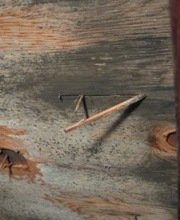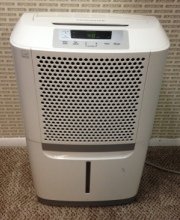Find a Mold Specialist Now
Click or Call, Toll-Free 24/7
Homeowners Insurance Mold: Are You Covered?
Do you have homeowners insurance mold coverage? Many homeowners don’t really know if they have mold insurance or not and don’t really think about it until there is a problem. Maybe they just assume their insurance policy will cover any damage they suffer or maybe they don’t think mold is something about which they have to worry.
The truth, however, is that mold can affect any dwelling. It might develop as a result of a slow leak under a sink or a roof that leaks a little each time it rains, or it might develop following a sudden event like a bursting pipe, a flood or a fire. In some cases, homeowners insurance covers mold remediation, but it doesn’t always. Homeowners are sometimes surprised and disappointed to find their policies won’t cover costly mold damage to their homes.
How Does Homeowners Insurance Mold Coverage Work?
According to United Policyholders, a nonprofit organization that provides education and advocacy for consumers, insurance claims for mold-related damage can generally be divided into two groups, those arising from an ongoing leak or buildup of moisture (a leak under a sink, a leak in the roof, etc.) and those resulting from a sudden, significant leak or flood after which the building and belongings in it are not adequately dried in a timely fashion.
This distinction is important because homeowners insurance mold coverage usually only covers mold remediation when the mold is believed to result from a sudden leak or flood and when that water damage is also covered by the insurance policy.
What does this mean in practice?
 Mold on wall caused by a leak
Mold on wall caused by a leakIf there is a small leak under your sink and you don’t notice it for a while and mold starts to grow, your insurance probably will not pay to repair the leak or to remove the mold. If your dishwasher or washing machine or water heater leak and mold begins to grow, your insurance probably will not pay to repair the appliance or to remove the mold. If your roof leaks a little each time it rains and mold starts to grow in your attic, your insurance probably will not pay to fix your roof or to remove the mold. Homeowners are generally responsible for the costs of maintaining a home and its appliances and, if something leaks and you don’t notice it and fix it in a timely manner, you are responsible for any mold that results.
If, on the other hand, your roof blows off in a storm and mold later grows in your home as a result of the water damage from the storm, your insurance will probably pay to repair your roof and to remove the mold. If your home catches fire and mold later grows as a result of the water damage from putting out the blaze, your insurance will probably pay to repair your home, fix the water damage, and remove the mold. The bottom line is that if the damage that leads to the growth of mold is covered by your insurance policy, then the mold remediation will probably be covered as well.
Now, the typical homeowners insurance policy does not cover flood damage. Homeowners are not always aware of this, but generally if you want to be protected in the event of flooding, you need to purchase flood insurance in addition to your regular homeowners insurance policy. If mold results from a flood, your insurance will probably only cover the cost of mold removal if you have flood insurance. You can read more about homeowners flood insurance here.
If You’ve Found Mold in Your Home
If you’ve found mold in your home, we encourage you to schedule a free in-home consultation with a mold remediation professional. An experienced professional will visit your home, inspect for mold, advise you about the work that needs to be done, and provide you with a written estimate for the cost of the job.
He or she will help you determine what caused the mold problem in your home, which is important for two reasons. If you don’t correct the cause of the problem, mold will just come back. Also, whether or not your homeowners insurance mold coverage will cover the cost of mold remediation will depend in part on what led to the mold growth in the first place.
If you have mold insurance, the mold remediation professional will assist you in filing your claim and dealing with your insurance company.
To find qualified mold remediation professionals in your area, just follow the link.
Return From Homeowners Insurance Mold To Home Page
Privacy Policy Terms and Conditions Accessibility Do Not Sell My Information Disclaimer Contact Us




